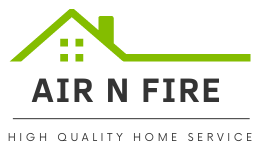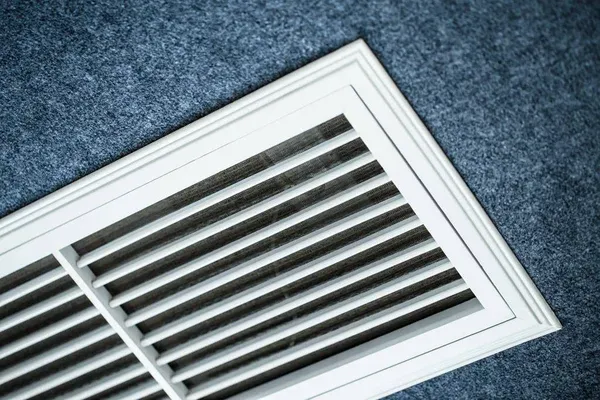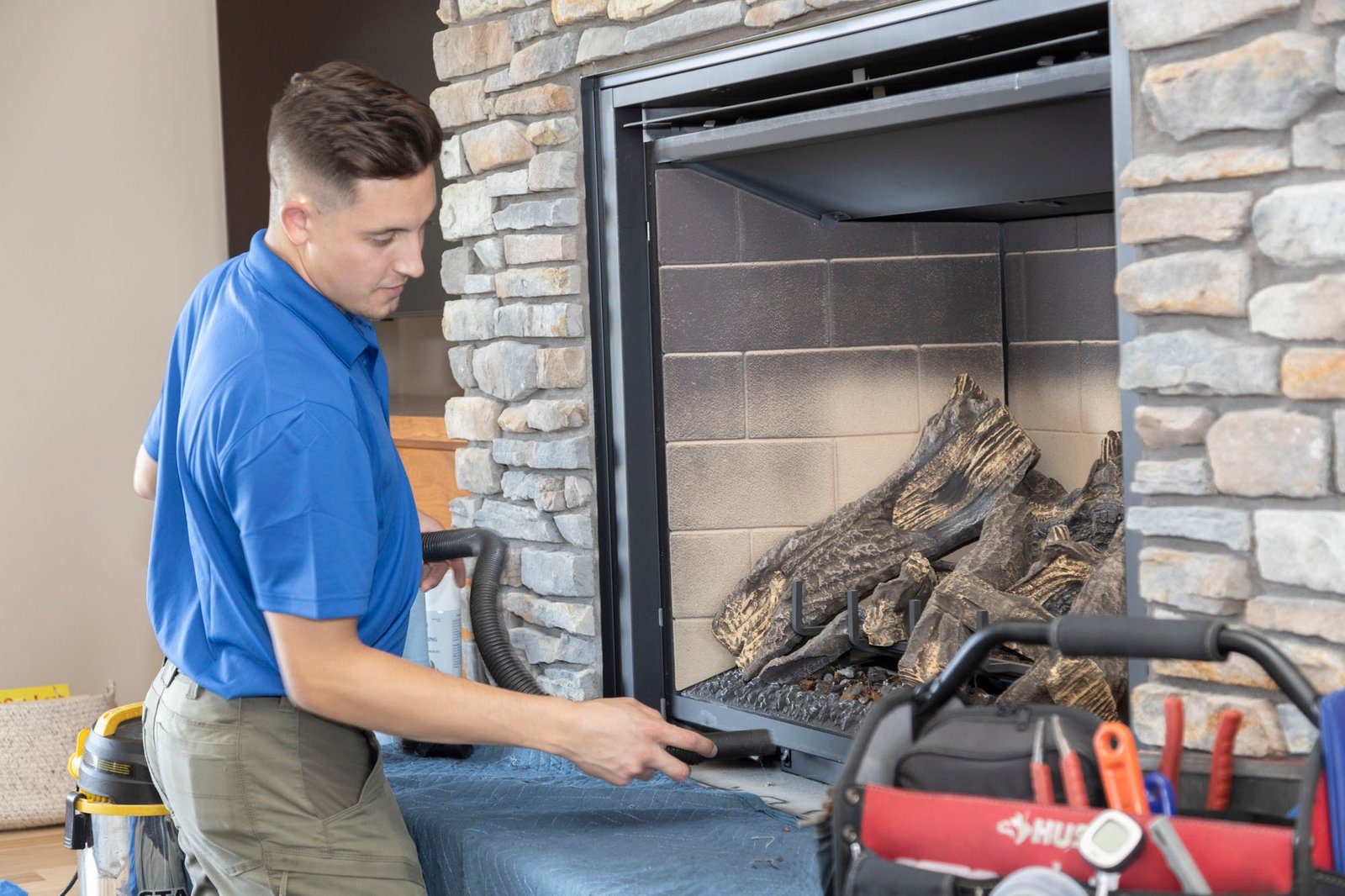Air ducts are essential components of your home’s home ventilation system. You can enjoy a healthier and more fulfilling everyday routine if your home is clean, including the air ducts and the HVAC system. Over time, dirt, dust, and even mold can accumulate, leading to poor air quality and other issues that affect your health and energy bills.
Knowing how to know if your air ducts need cleaning is crucial to maintaining a healthy and efficient home environment. This article will walk you through the top warning signs that your air ducts are overdue for cleaning.
Top Warning Signs Your Air Ducts Need Cleaning
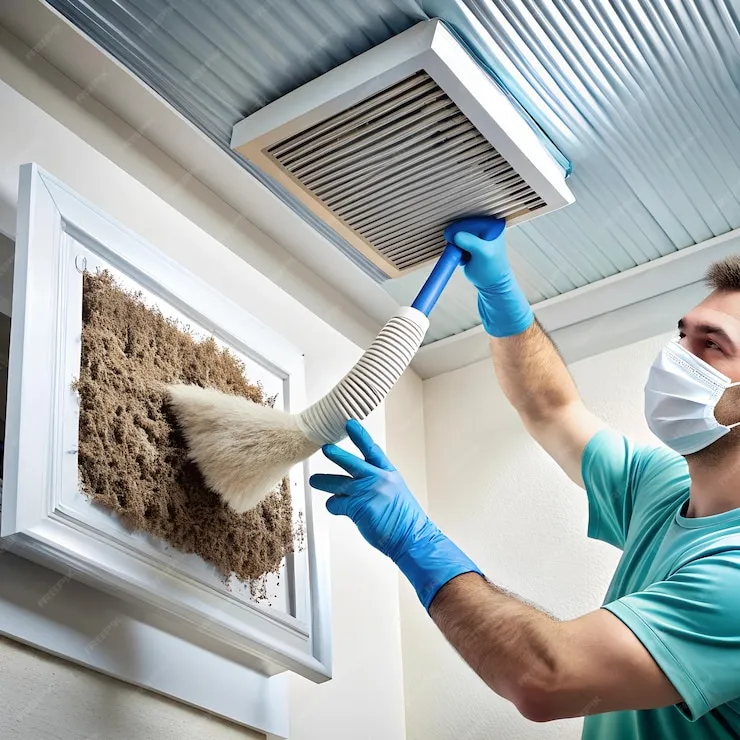
Air duct cleaning can be detected by focusing on a few indicators, such as a dusty smell. We have discussed all these indicators so homeowners can decide when to get their air ducts cleaned. Follow the symptoms below to see if your home needs a cleaning routine soon.
1. Stale Air Smell
One of the first signs of dirty air ducts is a stale air smell, especially when the HVAC system is running. If your home smells stuffy or musty, it’s a clear indicator that dirt or mold may have accumulated in the ductwork. If you live nearby, consider scheduling air duct cleaning in University Park to eliminate odors and improve indoor air quality.
2. Higher Energy Bills
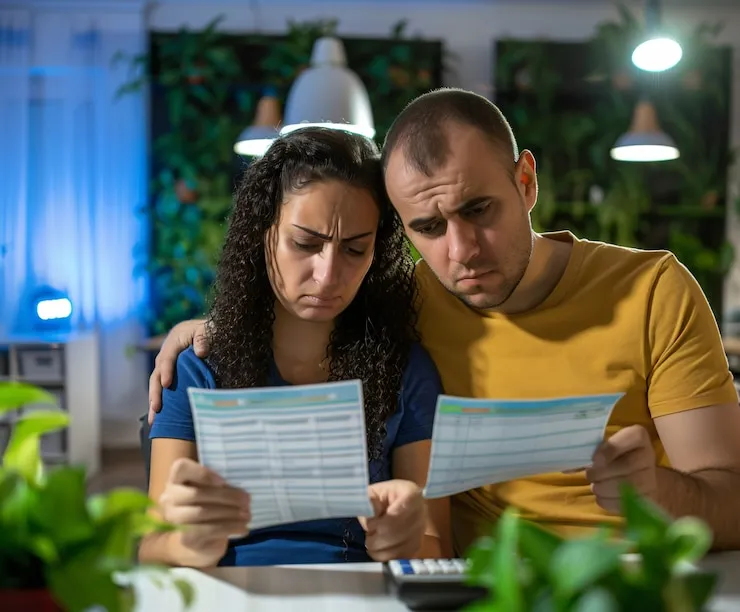
A significant increase in the energy bills without a change in usage or temperature means that the system is consuming more energy to maintain the same temperature. This rise in energy consumption indicates obstruction in the ducts, causing the HVAC system to work harder. Dirty ductwork forces your HVAC system to work harder to maintain comfortable temperatures. Learn more about how much air duct cleaning costs in Texas and how it helps reduce long-term energy expenses.
3. Mold and Humidity Increase
If you enter your home and notice a humid and moist atmosphere, the air ducts have a lot of unwanted mold or dust accumulation, which can retain moisture. A moldy smell or an increase in indoor humidity is often a sign of mold growth inside your air ducts. Mold thrives in humid environments, and once it grows in your ductwork, it can spread throughout your home.
It’s important to distinguish between mold vs. dust in air conditioner systems. Mold often has a strong, musty odor, while dust is more noticeable by sight. Both can cause serious health issues, making air duct cleaning necessary in homes with these problems. Many homeowners wonder, “Should I have my ducts cleaned regularly?” While some homes can go longer without cleaning, if you notice dirty ductwork, unusual smells, or dust buildup, you should schedule a professional cleaning. Both can cause serious health issues, making air duct cleaning necessary in homes with these problems. To understand this issue better, check out Mold in Air Ducts: Facts, Signs, and How to Deal with It.
4. Dust and Dirt
An increase in dust and dirt around your home, particularly near air vents, is one of the most common signs of clogged air ducts. If you clean frequently but still notice a buildup of dust, you might have dirty air vents that require immediate attention. If you’re constantly battling dust in your home, it’s a sign that dust is building up inside your air ducts.
If you’re constantly battling dust in your home, it’s a sign that dust is building up inside your air ducts. For residents in North Texas, scheduling air duct cleaning services in Plano ensures your home stays cleaner for longer.
Dust in ductwork not only leads to more frequent cleaning but also reduces the efficiency of your HVAC system, requiring more energy to maintain comfort.
5. Allergies and Respiratory Issues

A sudden spike in allergy symptoms or respiratory problems among your family members can be attributed to dirty air ducts. Dust, allergens, and even mold spores can circulate through your HVAC system, leading to poor indoor air quality and exacerbating health issues.
6. Temperature Inconsistency
If some rooms in your home are significantly hotter or colder than others, this may be due to a blockage in the air ducts. Air duct blockage disrupts the airflow, causing temperature inconsistencies. In such cases, you should consider whether duct cleaning is necessary to restore balanced airflow.
Does duct cleaning help airflow? The answer is yes; a clean duct system allows air to flow freely, making your HVAC system more efficient and reducing energy consumption. If you’re still unsure, ask yourself, “Should I clean my air ducts if I notice any of these signs?” If yes, contact a professional to ensure a thorough cleaning. Air duct blockage can lead to poor airflow and uneven heating or cooling. If you’re dealing with uneven temperatures in different rooms, it may result from blocked ducts.
7. Dirty Grills
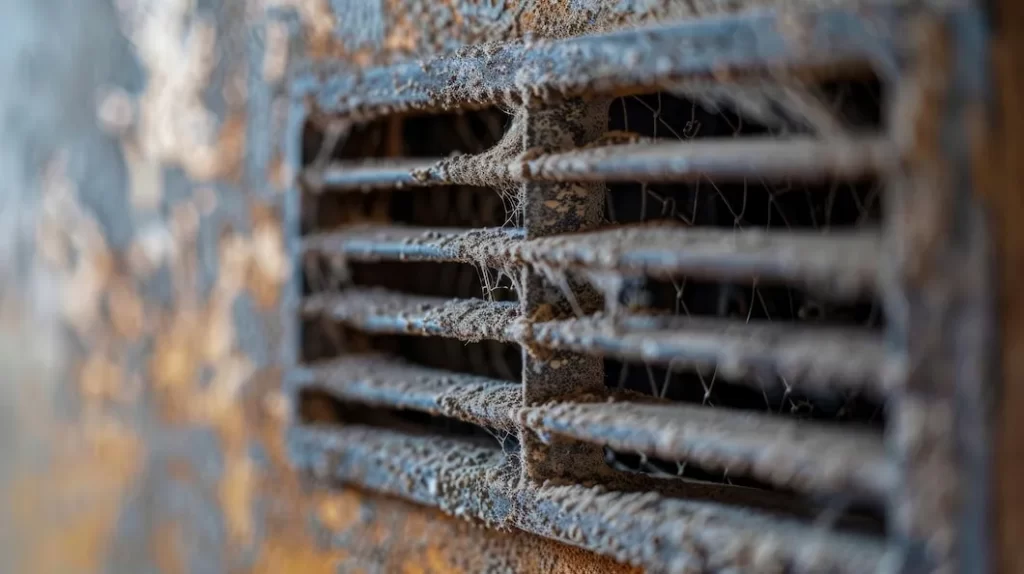
Dirty grills or air vents with a visible layer of dust or debris are easy-to-spot indicators of a neglected ventilation system. This is one of the most obvious dirty air ducts symptoms that suggest your air ducts haven’t been cleaned in a while. You might wonder, “Is cleaning ductwork necessary for maintaining a clean and healthy home?” The answer is yes, especially if you’re dealing with any warning signs mentioned earlier.
You might wonder, “Is cleaning ductwork necessary for maintaining a clean and healthy home?” The answer is yes especially if you’re dealing with any of the warning signs mentioned earlier. Learn more about the benefits of air duct cleaning for home to understand why regular maintenance matters.
8. Dirty HVAC Filters
Clogged or dirty HVAC filters are another sign that your air ducts need attention. If your filters are constantly dirty despite regular changes, dust is likely circulating through the ductwork, necessitating a deep clean.
9. Presence of Rodents and Pests
The presence of pests, such as rodents or insects, inside or around your air ducts is a serious issue. These pests can leave behind droppings, dander, and other contaminants circulating through your home, affecting air quality and necessitating immediate duct cleaning.
10. Long Intervals Between Cleaning
How do I know if my ductwork needs to be cleaned? First, ask yourself when you last cleaned the dusty air ducts. If it has been too long since you cleaned the air ducts and HVAC system, it is time for you to get this done soon.
If you notice any of the aforementioned signs of dirty air ducts, such as dust, stale air, or fluctuating energy bills, it’s time to inspect your ductwork. You may also ask yourself, “How do you know if your air ducts need cleaning?” Regular inspection of air vents and HVAC filters can reveal whether your system requires professional cleaning.
Does duct cleaning help with dust? Absolutely. Cleaning your air ducts will reduce the dust circulating in your home, improving indoor air quality and making it easier to keep surfaces clean.
Air Duct Cleaning From Air N Fire
If you see any signs that your air ducts need cleaning, contact Air N Fire. This service is the best as it offers complete, thorough air duct cleaning services. From cleaning dirty ductwork, removing contaminants, and improving your HVAC system’s overall efficiency, the professional teams will do it all.
Whether you’re wondering, “Do AC ducts need to be cleaned?” or “Should I get my ducts cleaned?” Air N Fire has the expertise to ensure your home’s air quality is safe and healthy.
Still unsure if cleaning is worth it? Read Is Air Duct Cleaning a Waste of Money? it explains why it’s one of the smartest investments for your home. Don’t wait until the problem increases — contact Air N Fire today for a professional consultation.
FAQs
How does air duct cleaning improve indoor air quality?
Air duct cleaning removes dust, allergens, and contaminants from your HVAC system, which helps reduce indoor pollutants. This can improve air quality, making it safer to breathe, especially for those with allergies, asthma, or respiratory conditions.
Can air duct cleaning help with pet odors in the home?
Yes, air duct cleaning can reduce pet odors by removing pet hair, dander, and other particles that may have settled in the ducts. This helps keep your home smelling fresh and improves the overall air quality.
Is air duct cleaning necessary if I change my HVAC filters regularly?
While regular filter changes are essential for maintaining air quality, they don’t remove debris, mold, or dust that has already accumulated in the ductwork. Air duct cleaning addresses buildup inside the ducts that filters alone can’t remove.
How can I tell if my air ducts were cleaned properly?
After cleaning, you should notice less dust near vents and no musty smells. A professional cleaning service will often provide before-and-after photos of the ductwork to show the effectiveness of their work.
Can air duct cleaning reduce symptoms of allergies and asthma?
Yes, removing dust, mold, and allergens from air ducts can reduce the spread of these irritants, which helps lessen allergy and asthma symptoms. Clean air ducts contribute to a healthier living environment for sensitive individuals.
